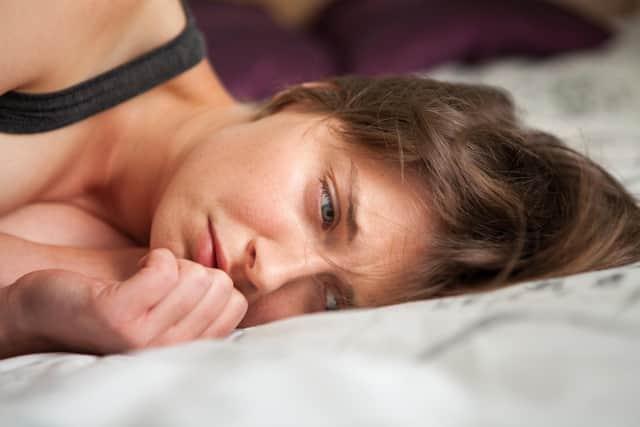Rape Crisis Scotland calls for independent legal advice for all survivors throughout court proceedings
Countless survivors have reported the process of going through court is more traumatising than the rape itself. However, a new proposal from Rape Crisis Scotland hopes to help change this.
Survivors taking a case in the criminal courts at the moment have no right to independent legal advice (ILA) unless their personal records – for example, medical records – are introduced in a trial.
Advertisement
Hide AdAdvertisement
Hide AdA recent report from Lady Dorian recommended this right is extended to also include access to ILA when sexual history is brought up in a trial.


HM Inspector of Prosecutions in Scotland examined the use of such evidence in sexual offence trials and urged the Crown Office to improve handling of sexual history in court.
However, Rape Crisis Scotland is calling for this to go even further.
In their report Beyond ILR published today, which The Scotsman received exclusive access to, Rape Crisis Scotland is proposing for ILA to be a right that all survivors are entitled to throughout court proceedings. The charitable company states ILA should be provided through non-means tested legal aid.
The hope is to reduce secondary trauma and increase confidence in the system, leading to more survivors reporting, according to the document.
The proposal is based on consultation with survivors who, when asked about the process, including further legal advice, showed “resounding support”.
Miss M won a landmark civil action in 2018 against a man who raped her at St Andrews University in 2013, after an earlier criminal trial ended in a not-proven verdict.
Supporting the call and discussing the impact of the criminal process on her well-being, Miss M said: “I wanted to pull out, I was being harassed and I wanted to end it. I let [the PF] know, she didn’t even respond to my email and sent police round to my house on a Saturday morning. They told me I could be committing an offence and that I couldn’t pull out. All I needed was more support or guidance, someone to sit and explain the process to me.”
Advertisement
Hide AdAdvertisement
Hide AdMiss M said legal advice “would have made a huge difference”. “You spend a lot of time trying to understand legal jargon,” she said. “I could spend weeks trying to work out what something meant only to work out that I got it wrong. That is traumatic and stressful and takes up your life. So many people can’t cope with the [criminal] legal system, so pull out. ILA could lead to fewer people pulling out.”
Miss M said the level of support she received in her civil case was more favourable to that which she received in the criminal trial.
Another survivor said she had “no indication of the kind of questioning which felt like a character annihilation”. “I didn’t feel prepared for how vicious it was,” she said. “The way I was treated, and the lack of knowledge, left more trauma than the incident itself. More information would have been a bit more helpful.”
The report states lawyers involved need to be trauma-informed and be able to cope with the sensitivities in dealing with vulnerable witnesses.
Kate Thompson, a Rape Crisis Scotland justice policy worker who compiled the report, said: “There’s a few areas where legal advice would be helpful, not just for those who have to produce a medical record or reveal sexual history. For example, when the police are investigating or the COPFS [Crown Office and Procurator Fiscal Service] are deciding whether to prosecute, they can say they want to access your medical or phone records and if you don’t do this, they can say they won’t take the case any further as there is not going to be enough evidence.
"So there’s women who aren’t getting any legal advice at this early stage of the investigation about what their rights are. This could also include social work and care records, their history in children’s hearings and things like that.
“There is a justice gap because there are rights, but not all these rights are necessarily communicated to survivors who are lost in the process. Survivors often get very inconsistent experiences of the court process. A lot of the time, survivors feel outside of the system, which makes them feel like it’s not there to protect them or provide justice. Legal advice means that survivors understand what is happening and gives them a sense of control.”
The report argues existing legal advice proposals for Scotland “fall short" of what is available to support survivors in other countries. In Canada, in addition to ILA, survivors are offered five hours of state-funded legal advice. In Ireland, legal advice is available for survivors and solicitors have been permitted to sit in the trial and monitor the cross examination. They can indicate to the prosecutor if they wish to intervene.
Advertisement
Hide AdAdvertisement
Hide AdBenefits of legal advocacy cited are that survivors are treated with more respect, cross examination was less hostile and intrusive, and survivors felt more confident giving evidence.
Sandy Brindley, chief executive at Rape Crisis Scotland, said: "We know from our work with survivors that experiences of the criminal justice system for those who choose to pursue a case against their perpetrator can often be as traumatising as the assault itself. In many cases, the justice process even mirrors the experience of these intimate and traumatic crimes by leaving survivors feeling like they have little control and no voice.
"We hear often that rape complainers' find the system complex, confusing and invasive, and that others avoid pursuing cases at all because of their fears about the process. This is unacceptable and pursuing justice does not need to be inherently traumatic. Access to legal advice and representation has the potential to give complainers agency within the justice process, reducing secondary trauma and increasing the confidence of all survivors in the system.”